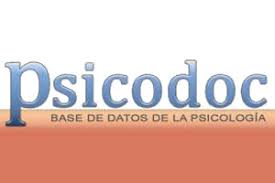View/Download
How to Cite
Ramos-Vidal, I. (2014). Influence of personal networks structure on the development of community processes in displaced population. Psychologia, 8(1), 43–54. https://doi.org/10.21500/19002386.1213
More Citation Formats
License terms
▼
This journal provides open, immediate access to its contents, based on the principle that offering the public free access to research helps to promote a higher global exchange of knowledge.
As such, all journal articles are published under a Creative Commons Attribution-NonCommercial-ShareAlike 4.0 International License (CC BY-NC-SA), by which commercial use of the original work or its possible derived works is not allowed, and the distribution thereof must be done with the same license elements regulating the original work.
http://creativecommons.org/licenses/by-nc-sa/4.0/
Abstract
Forced displacement affects over 5 million people in Colombia. The process of mobility experienced by displaced implies the weakening
of the linkages with their relational environment and may involve the deprivation of the right to decide at socio-political level. The sense of community, the community engagement and the psychological empowerment display a strong potential to understand both the adaptation
process in destination community, and the increase in community involvement. From a structural viewpoint, Social Network Analysis allows
to evaluate the social support networks of the displaced population. The aims of this study are: (a) assess the three community processes;
(b) analyze the personal networks structure of the displaced population; and (c) identify the potential effects that personal networks may
exert on the development of community processes. Results suggest that structural properties of networks impact on the level of participation
in community development activities. However, no significant relationships were identified between the structural measures and the other
two community processes evaluated. Density contributes positively on community participation while centralization parameters affect in a
negative way. We conclude discussing the applications of our results to design effective intervention strategies to promote the full integration
of displaced population in the host community.
of the linkages with their relational environment and may involve the deprivation of the right to decide at socio-political level. The sense of community, the community engagement and the psychological empowerment display a strong potential to understand both the adaptation
process in destination community, and the increase in community involvement. From a structural viewpoint, Social Network Analysis allows
to evaluate the social support networks of the displaced population. The aims of this study are: (a) assess the three community processes;
(b) analyze the personal networks structure of the displaced population; and (c) identify the potential effects that personal networks may
exert on the development of community processes. Results suggest that structural properties of networks impact on the level of participation
in community development activities. However, no significant relationships were identified between the structural measures and the other
two community processes evaluated. Density contributes positively on community participation while centralization parameters affect in a
negative way. We conclude discussing the applications of our results to design effective intervention strategies to promote the full integration
of displaced population in the host community.
Keywords:
Downloads
Download data is not yet available.

 Perfil Google Scholar
Perfil Google Scholar




















